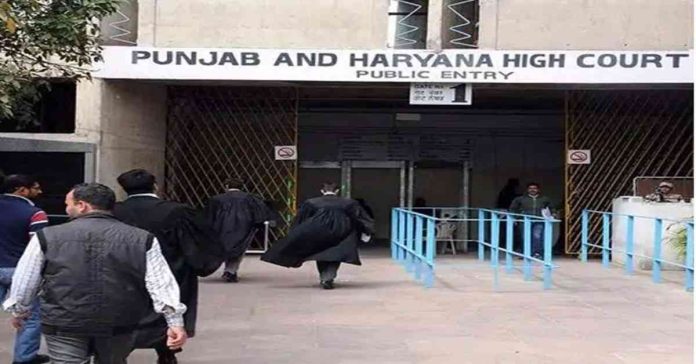An order of the Punjab and Haryana High Court has brought the issue of adultery into the limelight. It said: “The maintenance can be declined, in the event, it is proved and established that the wife is living in adultery. Living in adultery means continued adulterous conduct and not a single or occasional lapse. The solitary act of adultery or on the isolated lapse of wife, will not disentitle the wife to claim the maintenance.”
The Court made the above observation while dismissing a petition filed by a husband. Earlier, a family court in Rewari had dismissed his petition.
His wife had also filed a petition under Section 125 of the Code of Criminal Procedure on behalf of her three minor children and herself alleging that her marriage was solemnised on April 29, 2004. But her husband had neglected to maintain them. However, he alleged that his wife was having an adulterous relationship and this was confirmed by a handwritten note. He even sought to dispute the paternity of the children.
After this, he moved an application for examination by a handwriting expert. This was resisted by the wife. Though the written document was in the custody of the husband and he was given sufficient opportunity to produce the evidence, he intentionally moved the application at a belated stage to fill up a lacuna in the case, the wife alleged.
A single bench of Justice Vivek Puri noted that the husband knew about the alleged writing which was executed way back on May 19, 2005. This was used by him to dispute the claim of the wife for maintenance. He sought to cross-examine her about the writing, but she denied it. In his zeal to dispute the claim for maintenance, he even questioned the paternity of the children. One was born only two-and-a-half months prior to the filing of the petition.
The Court held that although discretion was vested in the trial court to act on the principles of justice and circumstances, there must be sufficient and reasonable material to justify the exercise of the discretionary powers vested in it. The High Court said that it found no justification for the husband not using the services of a handwriting expert to confirm his suspicions. He had been inactive for two years when the case was pending in the trial court for his evidence.
The Court said that Section 125 of the Code was meant to achieve a social purpose. It is a piece of social legislation which provides for speedy relief by way of maintenance to the wife.
Section 125(4) of the Code reads: “No wife shall be entitled to receive an [allowance for the maintenance or the interim maintenance and expenses of the proceeding, as the case may be], from her husband under this Section if she is living in adultery, or if, without any sufficient reason, she refuses to live with her husband, or if they are living separately by mutual consent.”
Therefore, the bench observed that the burden of proof of unchastity was on the husband. Unless it was found that at the relevant point of time, the wife was actually living in adultery, she could not be disentitled from maintenance. The material on record must indicate that the wife was living in adultery shortly before or after the petition of maintenance was instituted, the Court said.
Incidentally, in August this year, the Delhi High Court while holding that occasional acts of adultery committed in isolation do not amount to “living in adultery” said it does not disentitle a woman to get maintenance from her husband after divorce. Rejecting the husband’s plea, which challenged a trial court direction to pay monthly maintenance of Rs 15,000 to his wife, Justice Chandra Dhari Singh held that only continuous and repeated acts of adultery by the wife would attract the legal exception to the grant of payment of an allowance by the husband.
Recently, in Lucknow, while accepting an appeal of domestic violence, Additional Sessions Judge Viveka Nand Sharan Tripathi, while setting aside the maintenance order of the lower court, said that if the woman lives with another person without giving divorce, then she is not entitled to get maintenance from her husband.
Adultery was a criminal offence under Chapter XX of the India Penal Code (IPC) until it was quashed by the top court on September 27, 2018, as unconstitutional. A five-judge bench of the Supreme Court unanimously struck down Section 497 of the IPC as being violative of Articles 14, 15 and 21 of the Constitution. However, it is still a sufficient ground for divorce as ruled by the apex court.
–By Shivam Sharma and India Legal Bureau


